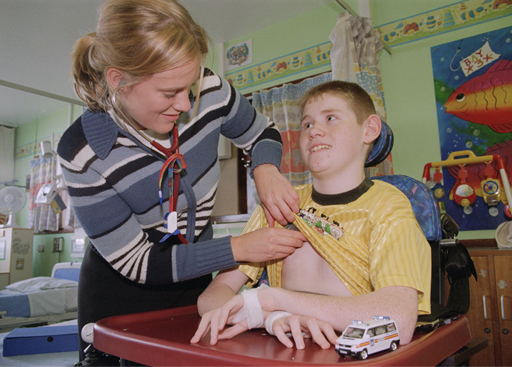1 What are some of the health risks?
People with learning disabilities make up about 2% of the global population. However, as you saw in Session 1, only a quarter of adults with learning disabilities are identified in English GP learning disability registers and are known to specialist learning disability services.
This is a big concern because people with learning disabilities:
- are likely to be at risk from the determinants of health inequalities, like poverty and poor education
- are more likely to live with multiple health conditions
- are at increased risk of early (and avoidable) death – latest reports show average age of death at 58 (University of Bristol, 2018)
- often have limited access to health information because of communication difficulties, low expectations, lack of support, poor understanding of mental capacity and lack of reasonable adjustments by health services
- often rely on others, such as family carers or support workers, for help with access to healthcare; access can be poor if those people are not well informed themselves or there is a high turnover of workers
- are entitled to an Annual Health Check and health action plan if aged 14 or over and they are on their GPs’ learning disability registers. However, in 2014 to 2015 just under 50% of those on registers had a health check (Public Health England, 2016).
People with learning disabilities face striking inequalities when it comes to their health. In the following sections you’ll learn more about why this is the case.

